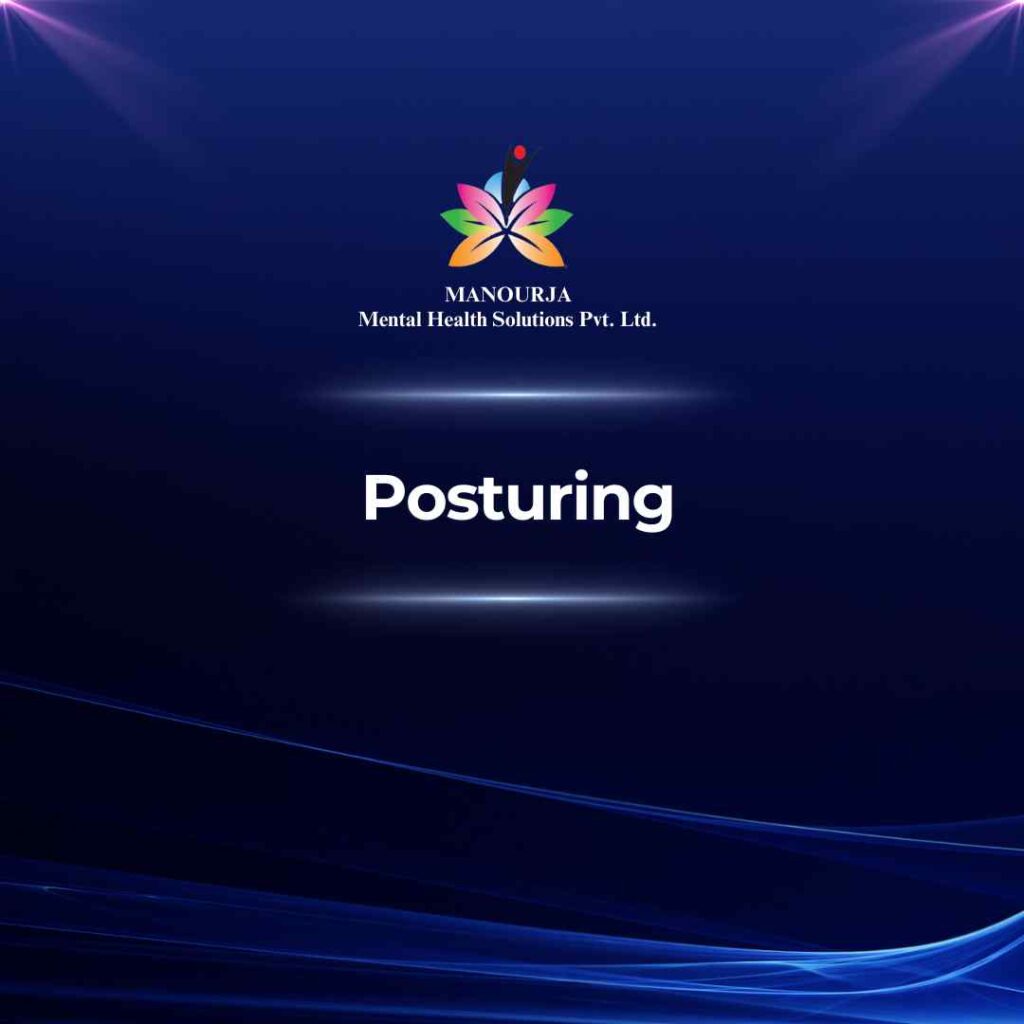Posturing

“Posturing” in the context of mental illness refers to abnormal or rigid body postures assumed by individuals that do not serve any functional purpose. These postures are often unusual, fixed, and maintained for extended periods, sometimes without awareness or control. Posturing can manifest in various forms and may be indicative of underlying neurological or psychiatric conditions.
Posturing as a Sign and Symptom of Mental Illness
Posturing is considered a neurological or neuropsychiatric symptom and can be observed in certain mental health disorders. It often reflects disturbances in motor function, posture control, or neuromuscular coordination.
Mental Illnesses with Posturing as Symptoms
Posturing can occur in the following mental health disorders:
- Catatonia: Catatonia is a neuropsychiatric syndrome characterized by disturbances in movement, behavior, and motor functions. Posturing is a prominent feature of catatonia and can include:
- Rigidity: Maintaining a fixed, stiff posture for extended periods.
- Waxy Flexibility: Allowing limbs or body parts to be repositioned and remaining in new positions indefinitely.
- Echopraxia: Mimicking the movements of others.
- Schizophrenia: In some cases of schizophrenia, individuals may exhibit catatonic symptoms, including posturing. This can involve assuming rigid or bizarre body postures that are unrelated to the surrounding environment or context.
- Neurodevelopmental Disorders: Posturing may be observed in individuals with certain neurodevelopmental disorders, such as autism spectrum disorders (ASD). It can manifest as repetitive or stereotyped movements or postures, often as a form of self-regulation or sensory stimulation.
- Neurological Conditions: Posturing can also occur in neurological conditions that affect motor control and coordination, such as Parkinson’s disease, Huntington’s disease, or certain types of encephalopathy.
Managing and Treating Posturing
Treatment for posturing depends on the underlying cause and may include:
- Medical Evaluation: Conducting a thorough medical evaluation to identify any underlying neurological or medical conditions contributing to posturing.
- Medication: In cases of catatonia or associated psychiatric disorders, medications such as benzodiazepines or antipsychotics may be prescribed to manage symptoms and improve motor function.
- Therapy: Behavioral therapies and rehabilitation techniques aimed at improving motor coordination, flexibility, and adaptive functioning.
- Supportive Care: Providing a supportive environment, ensuring safety, and addressing any associated complications or impairments caused by posturing.
- Multidisciplinary Approach: Collaborating with a multidisciplinary team of healthcare professionals, including psychiatrists, neurologists, occupational therapists, and physical therapists, to develop a comprehensive treatment plan.
Recognizing posturing as a symptom of an underlying neurological or psychiatric condition is crucial for accurate diagnosis and effective treatment. Addressing posturing through targeted interventions can help improve motor function, reduce distress, and enhance overall quality of life for individuals affected by these symptoms
At MANOURJA, we believe in the transformative power of counseling. Our experienced therapists offer a safe and supportive space where you can explore your thoughts, emotions, and challenges. Through personalized counselling sessions, we’ll work together to develop coping strategies, build resilience, and achieve lasting positive change. Discover the path to a healthier, happier you with MANOURJA counselling services.
MANOURJA Rehabilitation Services
At MANOURJA, we’re dedicated to helping you in rebuild your life, after difficult times. Our rehabilitation services focus on understanding what you need to move forward, whether you’re recovering from addiction, trauma, or any psychological – social challenges. We create personalized plans, that are all about helping you, regain your strength and find hope again. With a caring team by your side, you’ll have the support to make real progress and take steps toward a brighter, healthier future.
